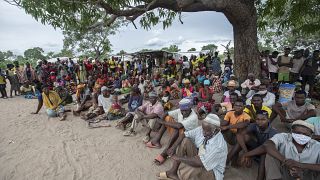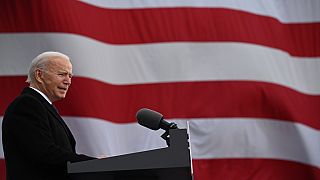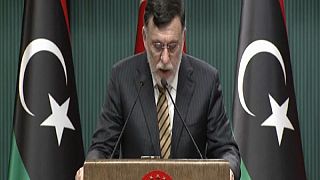anti-terrorism
The European Union has agreed to partner with Mozambique in curbing a surge in armed violence attributed to extremist Islamic groups in Cabo Delgado province.
The EU cooperation with Mozambique is seen as a key element in bolstering security levels in the coastal province.
Last year the jihadist group known locally as Al-Shabaab -- which has sworn allegiance to Islamic State but has no known links to the group of the same name operating in Somalia -- attacked four towns including the port of Mocimboa da Praia, which has been occupied since August.
The fighting in the north of the country has already claimed 2,400 lives and forced 570,000 people to flee their homes, according to the government.
More than half of those killed were civilians, says the non-profit organisation ACLED, which tracks data relating to armed conflicts.
Meanwhile, Mozambique's President Filipe Nyusi has replaced the army's top generals after intensifying jihadist attacks threatened a major natural gas plant in the country's north.
While the presidency did not give reasons for the military reshuffle, it may have been prompted by renewed attacks by an Islamist group in the northern Cabo Delgado province, site of the $20 billion construction project led by French energy giant Total.
Slated to come online in 2024, the liquid natural gas (LNG) plant is the centrepiece of a government dream to reap riches from Mozambique's offshore energy fields.
Earlier this month, Total said it had evacuated some of the 3,000 staff there, after military sources said the jihadists raided four locations just kilometres away in December and that a gun battle had erupted on the site itself.
In a statement, Nyusi's office said Eugenio Mussa had replaced Lazaro Menete as chief of the general staff, and also named a new deputy chief.
Mussa was the commander on the ground of the forces fighting the insurgency in Cabo Delgado and "was recently praised for good results," Joaquim Chissano University security researcher Calton Cadeado told AFP.
Nevertheless, he suggested that "what the military seems to need the most is resources," questioning whether moving Mussa away from the front line would help beat back the jihadists.
Meanwhile Nyusi has trailed a meeting next week of the Southern African Development Community (SADC) bloc on security in Mozambique and the wider region.













Go to video
Burkina Faso military government says it thwarted "major" coup attempt
Go to video
At least 300 people killed during the post-election violence in Mozambique
Go to video
Progress in solar power expansion in Mali amidst significant challenges
Go to video
Army airstrike on a market kills 18 in Mali
Go to video
Somalia: At least 6 dead in a car bomb attack
10:27
Global terrorism deaths surge by 11% in 2024